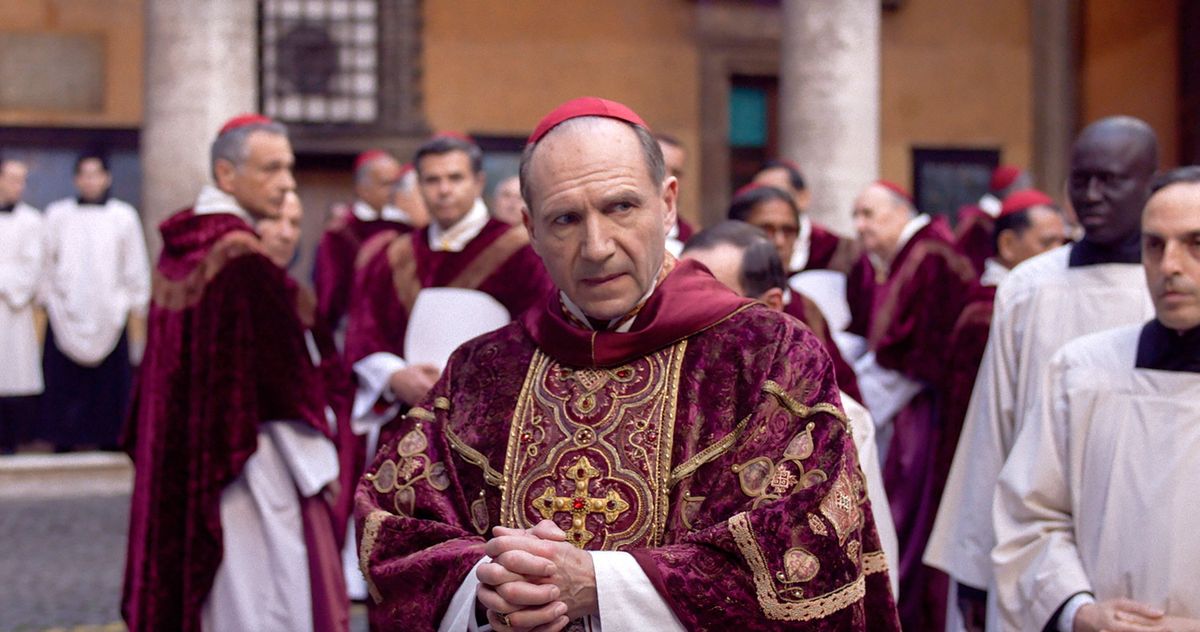Entertainment
Per chairman Taylor Swift, here's what we know about 'The Tortured Poets Department'

It’s the dawn of a new era — a new Taylor Swift Era, that is.
This week, the 14-time Grammy Award-winning artist will release her 11th studio album, “The Tortured Poets Department,” which she first announced at the Grammys in February.
While accepting the pop vocal album award for “Midnights” — her first of two wins that night — Swift thanked her fans by divulging “a secret that I’ve been keeping from you for the last two years, which is that my brand new album comes out April 19.”
The announcement came as a shock to Swifties, who had theorized that the singer would instead announce “Reputation (Taylor’s Version)” at the awards ceremony. (That the albums seem to share a B&W aesthetic didn’t help).
And while she may have intentionally thrown fans off the scent, “All’s fair in love and poetry.” So here’s what we know so far:
When does ‘The Tortured Poets Department’ come out?
Following a whirlwind promotional week, “The Tortured Poets Department” will arrive at 9 p.m. Pacific on Thursday. Her “April 19” announcement in February was referring to the album’s East Coast ETA.
Swift began making the album directly after she turned in “Midnights,” and it took her about two years to complete, she said during her first Eras Tour show in Japan on Feb. 7.
“I kept working on it throughout the U.S. tour, and when it was perfect — in my opinion when it’s good enough for you — I finished it and I am so, so excited that soon you’ll get to hear it,” she told the crowd.
What genre is it?
In Target’s product description for “The Tortured Poets Department” vinyl, the album is classified as pop, but the singer herself has not indicated where the album lands with respect to genre.
Instead, the self-proclaimed “chairman of the Tortured Poets Department” has released successive batches of lyrics, including “Crowd goes wild at her fingertips / Half moonshine, / full eclipse” — posted on the day of the April 8 solar eclipse.
Still, clues about the album’s potential sonic characteristics may lie with two of its credited songwriters, Aaron Dessner and Jack Antonoff, who have each produced large swaths of Swift’s discography.
If the two producers’ generally dissimilar sounds — Dessner leans pastoral, and Antonoff, synthetic — both inflect the record, it could be anything from folk to indie pop.
How many songs? Any guest artists?
Swift revealed the track list for “The Tortured Poets Department” in a Feb. 5 Instagram post, listing the following 16 titles:
- “Fortnight” (feat. Post Malone)
- “The Tortured Poets Department”
- “My Boy Only Breaks His Favorite Toys”
- “Down Bad”
- “So Long, London”
- “But Daddy I Love Him”
- “Fresh Out the Slammer”
- “Florida!!!!” (feat. Florence + The Machine)
- “Guilty as Sin?”
- “Who’s Afraid of Little Old Me?”
- “I Can Fix Him (No Really I Can)”
- “loml”
- “I Can Do It With a Broken Heart”
- “The Smallest Man Who Ever Lived”
- “The Alchemy”
- “Clara Bow”
Additionally, there are four different confirmed editions of the album, each named after the bonus track it will include: “The Bolter,” “The Albatross,” “The Black Dog” and “The Manuscript.”
Post Malone and Florence and the Machine are also credited as songwriters on their respective tracks.
Spotify’s library installation for Taylor Swift’s new album “The Tortured Poets Department” is on view at the Grove in L.A. through Thursday.
(Rodin Eckenroth / Getty Images)
After the initial announcement at the Grammys, Swift was relatively quiet. In recent weeks, though, she’s gone back to her internet-breaking behavior.
It started with an Apple Music collaboration that saw Swift releasing five different playlists on the platform, each consisting of songs from her catalog and representing one of the stages of grief: denial, anger, bargaining, depression and acceptance. The playlists were titled with track names and lyrics from “The Tortured Poets Department.”
Then, on Saturday, Apple Music marked the final countdown to the album with a digital scavenger hunt.
“A word a day til the @taylorswift13 album drops,” the music service wrote in its bio on X (formerly Twitter).
Soon after, fans discovered that the secret words were hidden within song lyrics on Apple Music. Thus far, they’ve parsed the words “hereby,” “conduct,” “this,” “post” and “we,” and while many have their theories, the meaning of the incomplete word jumble is still unknown.
The festivities have also moved offline, to Spotify’s “The Tortured Poets Department” library installation at the Grove in L.A., which debuted Tuesday and is open through Thursday from 10 a.m. to 9 p.m.
“Fans will be able to explore a poetry library, highly curated to represent the new record,” the event description on the Grove’s website reads. “The shelves will be packed with books and visual surprises for fans to enjoy.”
Visitors also seem to be finding a number of Swift’s trademark Easter eggs throughout the installation, including an upside-down “So Long, London” title — which fans suspect is a nod to her year-ago breakup with British actor Joe Alwyn — and a clock set to 2.
The former visual also appeared in a video Swift posted Tuesday on Instagram. Captioned “The TTPD Timetable,” the cryptic clip guides viewers from a “Midnights”-style room into “The Tortured Poets Department,” where a wall calendar teases a Friday music video release.
How can I listen to the new album?
“The Tortured Poets Department” is available to pre-order (and pre-save on Spotify or Apple Music) on Swift’s website, and is currently being offered in vinyl, cassette, CD and digital album formats to be released April 19. It will also start streaming on that date — which for West Coasters means at 9 p.m. Pacific Thursday.
The four versions of the album are also available to pre-order on Swift’s website, but CD and vinyl versions of the album are also available at Target. Currently, there is no version of the album, digital or physical, that will contain all four bonus tracks.

Movie Reviews
‘Apartment 7A’ Review: Julia Garner and Dianne Wiest Star in Paramount+’s Oddly Lethargic Companion to ‘Rosemary’s Baby’

Soon after Rosemary (Mia Farrow), the protagonist of 1968’s Rosemary’s Baby, moves into the stately Renaissance revival building known as the Bramford with her husband, she meets Terry Gionoffri. Their encounter is brief but impactful.
Terry, portrayed with infectious ebullience by Victoria Vetri, eases Rosemary’s nerves about her recent move, reassuring her that the New York apartment’s other occupants are kind. In turn, Rosemary offers Terry a hopeful companionship. The two promise to make their laundry trips together as neither can stand the spooky basement. Before they part ways, Terry tells Rosemary about the Castevets, an older couple who helped her during a rough season. “I’d be dead now if it wasn’t for them,” Terry says, “that’s an absolute fact.”
Apartment 7A
The Bottom Line Doesn’t inspire enough creeping dread or jumpy frights.
Release date: Friday, Sept. 27 (Paramount+)
Cast: Julia Garner, Dianne Wiest, Jim Sturgess, Kevin McNally Andrew Buchan, Marli Siu
Director: Natalie Erika James
Screenwriters: Natalie Erika James, Christian White, Skylar James
Rated R,
1 hour 44 minutes
Paramount+’s Apartment 7A, directed by Natalie Erika James (Relic), uses Terry to introduce a new generation of viewers to that terrifying universe of Satanic cults and maternal purgatory first conjured by author Ira Levin and further popularized by Roman Polanski’s intense cinematic adaptation. James, who co-wrote the screenplay with Christian White and Skylar James, fills out Terry’s biography to explain her tragic fate and strengthen the connection between her and Rosemary. It’s not so much a prequel as it is a parallel story that continues underscoring the limited autonomy of women. Restrictive social mores trap both Rosemary and Terry, albeit in different ways.
Whereas Rosemary is married and toys with the idea of having a child, Terry is a single woman trying to be a Broadway star. Apartment 7A opens with Terry (Julia Garner) preparing for her theater debut in a backstage dressing room. Excitement flashes across her eyes as the ingénue practices vocal warmups and puts finishing touches on her makeup. The glimmer dims when Terry later injures herself on stage. Unable to dance, she self-medicates with pills bought from a local busker and develops an addiction to painkillers. James portrays Terry’s descent into dependency with a laconic efficiency, which initially serves the narrative’s slow-burn pace.
Without a job, Terry relies on her friend Annie (Marli Siu) for support. Another rejection catapults the hurt performer into a deeper depression. Terry becomes so desperate that she follows Alan Marchand (Jim Sturgess), the producer of her most recent audition, to his home at the Bramford, hoping to convince him to give her another chance. But the doorman dismisses Terry at the front desk, and minutes later, she collapses on the sidewalk outside.
The plot picks up when Minnie (an excellent Dianne Wiest) and Roman Castevet (Kevin McNally) rescue Terry. But the tone stays oddly mellow, not quite inspiring the creeping dread of Polanksi’s adaptation, nor the jumpy fright often abused by contemporary horror offerings. Partial blame might lie in the attempts to reconcile Terry’s reality and her star aspirations. James includes a number of musical sequences, usually when Terry is between a waking and sleeping state. But these fever dreams land more as campy interruptions than as surreal and heightened hauntings. They also strip the subtlety out of Apartment 7A’s more understated messaging.
The film is desperate for audiences to understand that in accepting the Castevets’ generosity, Terry has assumed the role of a lifetime. Details of this position become clearer after the dancer moves into the vacant unit next to the older couple. They begin to manage Terry’s life so that she eventually lands a role in a big play and worries less about money. But anything “free” has a tradeoff. Morning sickness tips Terry off to her pregnancy and a visit to a health clinic confirms it. Before Rosemary carried the son of the antichrist, Terry did. Apartment 7A doesn’t investigate that fateful encounter between the two women in Rosemary’s Baby, but their interaction lives in the shadows, serving as a reminder of the Bramford residents’ depravity.
Inheriting the role from Vetri, Ozark star Garner imbues the bubbly Terry with darker undertones. She finds some complexity in her ambition, which drives the character farther into the arms of the Castevets. There’s an assured effort on Garner’s part to do more with the part, but a distance remains between the audience and Terry.
Wiest gets closer to narrowing that gap with her character. She modulates her performance so that Minnie’s personality shifts slowly from an overbearing warmth to an abrasive insistence. One of the strongest scenes sees Minnie, while giving Terry a haircut, communicate that the dancer will never be cleverer than she is. Aside from the final scene, Garner and Wiest are at their best in this nail-bitingly intense moment. As Minnie’s grip tightens on Terry’s hair, the terms of their agreement become devastatingly clear: a baby in exchange for fame.
Through Terry’s pregnancy, the movie, similar to Rosemary’s Baby, underscores the themes of bodily autonomy. James’ film is particularly compelling in post-Roe America, when recent headlines about punitive laws barring abortion access have lent it an urgent political valence, so it’s a shame that its energy doesn’t always match its relevance. Conversations between Annie and Terry heighten the stakes, as does the increasingly hostile relationship between Terry and Minnie, but most of Apartment 7A feels too mellow for its messages.
Entertainment
In a year of great pop music, Katy Perry's latest is pop trash

When in doubt, call in the kid.
That’s the unfortunate stratagem Katy Perry resorts to at the end of her new album, “143,” in a groaner of a closer called “Wonder” that features a guest turn by the singer’s 4-year-old daughter, Daisy.
Like a copy of a copy of her decade-and-a-half-old “Firework,” “Wonder” has Perry exhorting Daisy to stay innocent in a cynical world — to keep the fire lit in her heart, to keep the weight of reality off her wings, to resist letting “the envious ones say that you’re just a weed.” (No, really.) By spotlighting her child’s untrained warble, Perry is attempting to demonstrate the human stakes of that undertaking while showing us that, as a record maker, she’s living by her own advice.
She’s also, of course, daring us to scoff.
But scoff I must: On an album slick with flop sweat, poor little Daisy comes across not as a beneficiary of Perry’s motherly encouragement but as a victim of her creative desperation.
Anyone could understand why Perry was feeling adrift going into “143,” which comes a few months after she wrapped her seven-season run as a judge on “American Idol.” At 39 — and with a pair of largely unsuccessful LPs behind her in 2020’s “Smile” and 2017’s “Witness” — Perry is already past the age when female pop stars encounter the brutal disinterest of a music business preoccupied with novelty and youth; indeed, she was battling the perception of obsolescence even before the emergence this past summer of Sabrina Carpenter and Chappell Roan, both of whom no doubt put the scare into a superstar like 31-year-old Ariana Grande.
Perry’s determination to get back in the game is clearly what led her to reteam with Dr. Luke, the songwriter and producer with whom she made many of her biggest hits — including four of the five No. 1 singles from 2010’s 10-times-platinum “Teenage Dream” — in spite of a rape accusation Kesha made against him in 2014. (Last year, Kesha and Dr. Luke announced that they’d reached a settlement in their long-running legal drama, with the producer insisting he was “absolutely certain that nothing happened” on the night she claims he drugged and assaulted her.)
Whether or not Perry anticipated the considerable blowback triggered by her and Luke’s reunion — he oversaw all but one of the 11 tracks on “143” — she was right to bet that audiences would forgive her decision provided she came with bangers: Just look at the relative lack of outrage over Doja Cat’s work with Luke on her smash “Say So” and Latto’s work with him on the Grammy-nominated “Big Energy.”
The problem for Perry is that these songs are bad, and not even in a fun way. “143” is an oddly cold dance-pop album with boring melodies, utilitarian grooves and vocal performances that feel vaguely AI-derived; Perry writes and sings with none of the genuine emotional yearning or the sharp sense of humor that defined classics like “California Gurls” and the title track from “Teenage Dream,” which is probably why 21 Savage felt entitled to show up in “Gimme Gimme” and rhyme “I heard you gotta jump just to put on your jeans” (OK) with “I’m like Amazon ’cause I got what you need” (jeez).
I’ll spare you any more lyrical quotations except to point out that the best Perry can do in “Artificial,” which wants to make some kind of point about the encroachments of technology, is to describe herself as “a prisoner in your prison.”
A prisoner — in your prison.
“143’s” saucelessness is all the sadder given that pop music, after years of gloomy whispering, has finally circled back around to the wit and pageantry of Perry’s glory days. The success of sparkly bops like Carpenter’s “Espresso” and Roan’s “Hot to Go!” proves that listeners are hungry for what Perry used to serve up, albeit now on the condition that it contain the kind of endearing quirk — Carpenter’s daffy neologisms in “Espresso,” for instance — that Perry seems paradoxically to have avoided in her eagerness to please.
“I wanna know the truth, even if it hurts me,” she sings in “Truth,” so here it is: “143” isn’t a failure of circumstance — it’s a failure of imagination.
Movie Reviews
Super/Man: The Christopher Reeve Story movie review (2024) | Roger Ebert

On May 27, 1995, Christopher Reeve, who became internationally famous playing the title character in the original Superman movies, was riding at the Commonwealth Park equestrian center in Culpeper, Virginia when his horse refused to jump a one meter tall, W-shaped fence. Reeve fell and shattered his top two vertebrae. He barely survived, was rendered quadriplegic and nearly immobile, and would endure severe breathing challenges for the rest of his life. Headlines around the world treated this as a great irony: Superman not only couldn’t fly anymore, he could barely move. It was an understandable way to frame it, but and well-meaning, but ultimately dehumanizing.
The new documentary “Super/Man: The Christopher Reeve Story” pushes back against that presentation of Reeve’s accident and does their best not to treat Reeve’s story as that of a man who had it all but suddenly lost it. Instead, Reeve’s life is presented as a story of nearly superhuman endurance and determination: a beautiful and athletic movie star was struck down in his prime, then reconfigured himself as activist on behalf of people with disabilities, as well as a champion of funding for science that might alleviate or eliminate the suffering of others with spinal cord injuries.
Co-directed by Ian Bonhôte and Peter Ettedgui, “Super/Man” doesn’t flinch from the blunt physical facts of what happened. But in the end the approach cements the movie as a work of integrity. It consistently refuses to walk the much easier path taken by previous accounts of Reeve’s life, which front-loaded the story with his rise to stardom and attempts to move beyond his defining role as Superman, then presented his life after the accident as an inspiring postscript that couldn’t be lingered over because it would make audiences sad.
The filmmakers here aren’t sugarcoating anything here. They’re laying out what happened: not just the basic facts of Reeve’s life before and after, but the emotional impact on his friends (including his Juilliard acting program roommate Robin Williams, who was like a brother to him); his wife Dana, a super-heroic spouse who took care of him, and inspired and joined his activism; his first two children, Matthew and Alexandra; the kids’ mother Gae Exton (Reeve’s on-again, off-again girlfriend for a decade); and most piercingly, little Will Reeve, his son with Dana. Will was a toddler when the accident happened, and spent his third birthday without his father because Reeve was in the hospital fighting for his life. There are a lot of moving home video snippets in the documentary, but the bits showing that beautiful little boy, who was then too young to understand the magnitude of his father’s suffering, are right up at the top.
There’s a fair amount of information about Reeve’s career as an actor, especially his struggle to reconcile his beloved performance as Superman against his desire to prove himself in other types of roles (which he did in “Street Smart,” “Deathtrap” and “Somewhere in Time,” even though audiences didn’t turn out like they did when he wore the cape and tights). But this aspect of his life is interspersed with the account of his accident, survival, and subsequent attempts to manage his pain, relearn everything about how to live, and become a spokesperson for others dealing with the same challenges.
The movie feels a bit rushed or compacted at times—sometimes you might want it to live inside of a moment for longer than it does—and the music, which seems to be aiming for effects comparable to John Williams’ “Superman” score, is too ever-present, intrusive and loud at times; it often seems to be trying to tell us how to feel, which just isn’t necessary with a story so inherently harrowing and inspiring.
But all in all, this is a thoughtful and at times remarkable piece of nonfiction, working in an accessible commercial vein but doing its best not to take the easy way into any aspect of Reeve’s story. It’s most impressive when it’s pointing a camera at Reeve’s colleagues (including Glenn Close, Jeff Daniels and Whoopi Goldberg) as they talk about Reeve’s attempts to reinvent himself as a visibly paralyzed actor (he did a made-for-TV remake of “Rear Window”) and as a director, and even more so, when it’s letting his children tell the story of their father’s perseverance and the dedication of Dana Reeve, who is presented as so single-mindedly devoted to his physical and emotional care that you can understand why she wasn’t around for very long after her husband’s passing in 2004. Documentaries that really know how to listen are increasingly rare, and this is a good one.
The movie deserves a wide audience, and hopefully will redouble efforts to search for medical solutions that can ease the suffering of people with spinal cord injuries or perhaps one day make them a thing of the past.
-

 Movie Reviews1 week ago
Movie Reviews1 week ago‘Saturday Night’ review: A madcap backstage ode to Lorne Michaels’ legendary show
-

 News1 week ago
News1 week agoVideo: What Taylor Swift’s Endorsement Means for Kamala Harris
-

 Movie Reviews1 week ago
Movie Reviews1 week agoIs a Movie About Electing a Pope Allowed to Be This Entertaining?
-

 World1 week ago
World1 week agoWhat bombs did Israel use against the al-Mawasi ‘safe zone’ in Gaza?
-

 Politics1 week ago
Politics1 week agoDemocrats heap praise on Harris' debate performance, say she 'destroyed' Trump's career
-

 News1 week ago
News1 week agoTrump and Harris’ first showdown attracts more viewers than Biden debate
-

 News1 week ago
News1 week agoVideo: Trump and Harris Clash in a Fiery Presidential Debate
-

 Politics1 week ago
Politics1 week agoDem congressman says Trump should talk about dropping out after debate















